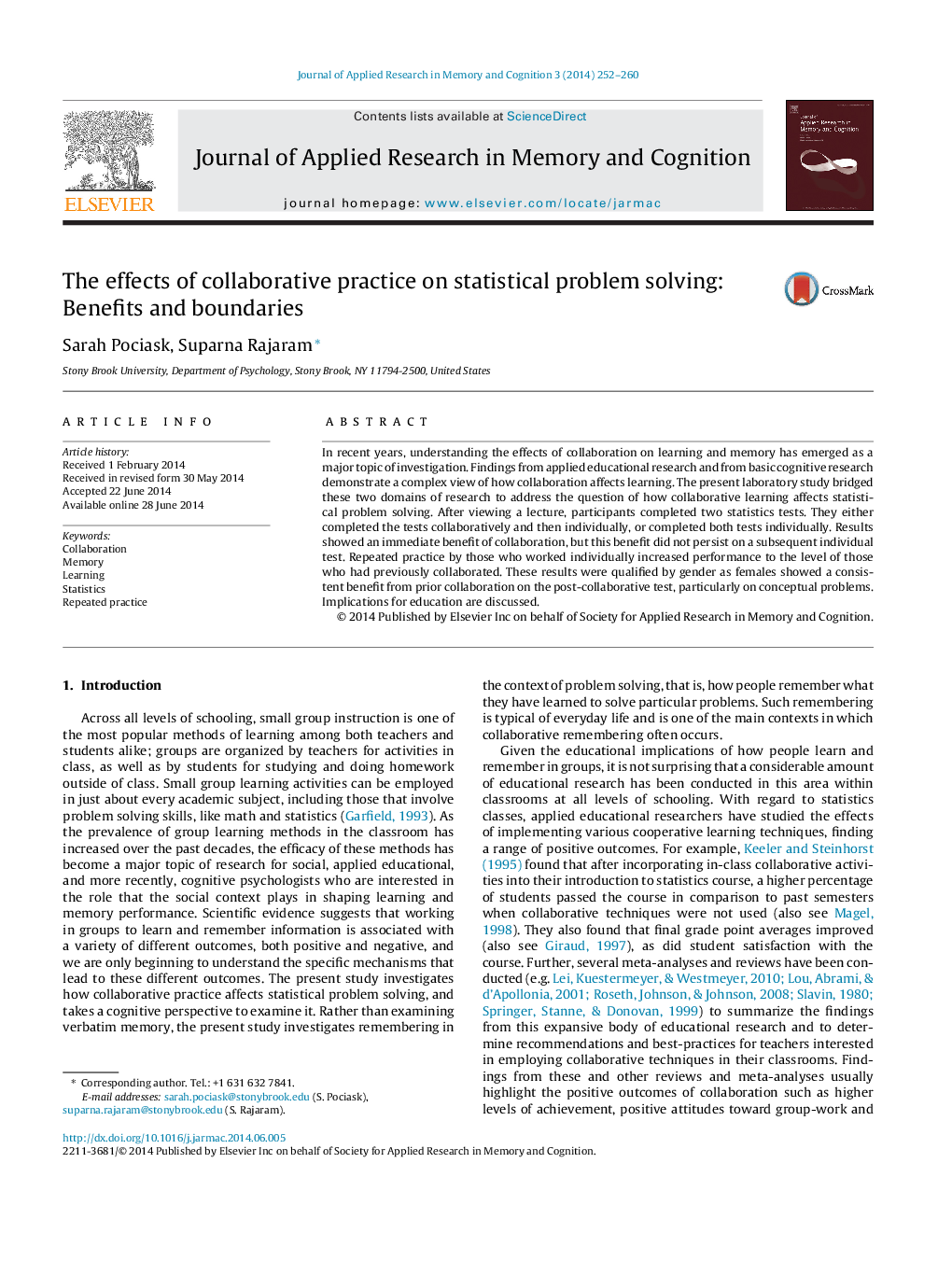| Article ID | Journal | Published Year | Pages | File Type |
|---|---|---|---|---|
| 881673 | Journal of Applied Research in Memory and Cognition | 2014 | 9 Pages |
In recent years, understanding the effects of collaboration on learning and memory has emerged as a major topic of investigation. Findings from applied educational research and from basic cognitive research demonstrate a complex view of how collaboration affects learning. The present laboratory study bridged these two domains of research to address the question of how collaborative learning affects statistical problem solving. After viewing a lecture, participants completed two statistics tests. They either completed the tests collaboratively and then individually, or completed both tests individually. Results showed an immediate benefit of collaboration, but this benefit did not persist on a subsequent individual test. Repeated practice by those who worked individually increased performance to the level of those who had previously collaborated. These results were qualified by gender as females showed a consistent benefit from prior collaboration on the post-collaborative test, particularly on conceptual problems. Implications for education are discussed.
